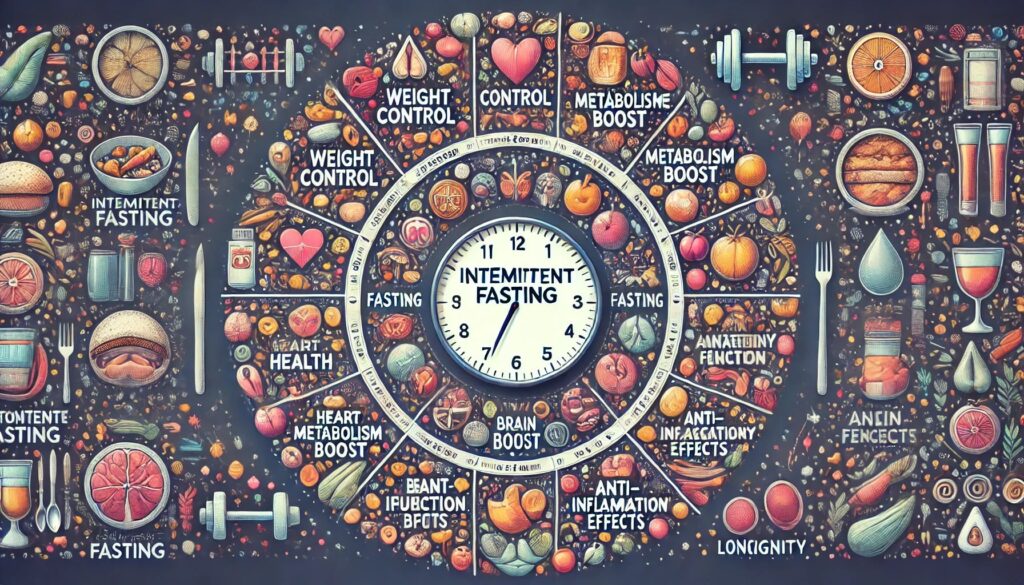Intermittent fasting is an eating pattern that involves alternating periods of eating and fasting. This dietary approach has gained popularity in recent years, and research indicates numerous health benefits. Here are some of the most significant ones:
Intermittent Fasting and Weight Control
Intermittent fasting can help reduce body weight and fat. By limiting the time window for eating, many people unconsciously consume fewer calories, which can lead to weight loss.
Metabolism and Insulin Sensitivity
This method can improve insulin sensitivity, meaning the body utilizes nutrients from food more effectively. Lowering insulin levels can also help reduce the risk of developing type 2 diabetes.

Intermittent Fasting and Heart Health
Intermittent fasting may lead to improvements in heart health markers, such as cholesterol levels, blood pressure, and triglycerides. These factors are crucial for the prevention of heart disease.
Enhanced Brain Function
Some studies suggest that intermittent fasting can enhance brain function and reduce the risks of neurodegenerative diseases, such as Alzheimer’s and Parkinson’s disease. This may be attributed to increased release of neurotrophic factors.
Anti-Inflammatory Effects
Intermittent fasting can reduce inflammation in the body, which is associated with many chronic diseases. Lowering inflammatory markers may lead to improved overall health.
Cellular Repair Processes
Intermittent fasting stimulates cellular repair processes, such as autophagy, where cells destroy and recycle damaged components. This can help maintain cellular health and prevent diseases.
Intermittent Fasting and Longevity
While research on human populations is ongoing, some studies in animals suggest that intermittent fasting may lead to increased longevity. This theory is linked to improved metabolic processes and reduced risks of chronic diseases.
Intermittent fasting can offer significant health benefits, but it’s essential to tailor it to individual needs and health conditions. Before starting this dietary approach, it’s advisable to consult a healthcare provider or nutritionist, especially for individuals with specific health issues.
For More Information:
To explore evidence-based insights on the health benefits of intermittent fasting, visit trusted sources such as the Harvard T.H. Chan School of Public Health and the Johns Hopkins Medicine. These organizations provide expert guidance and research-backed information.
More Useful Links:
Balanced Nutrition: Proteins, Carbs, and Healthy Fats
Nutrition and Healthy Eating: The Key to Long-Term Health and Well-Being
